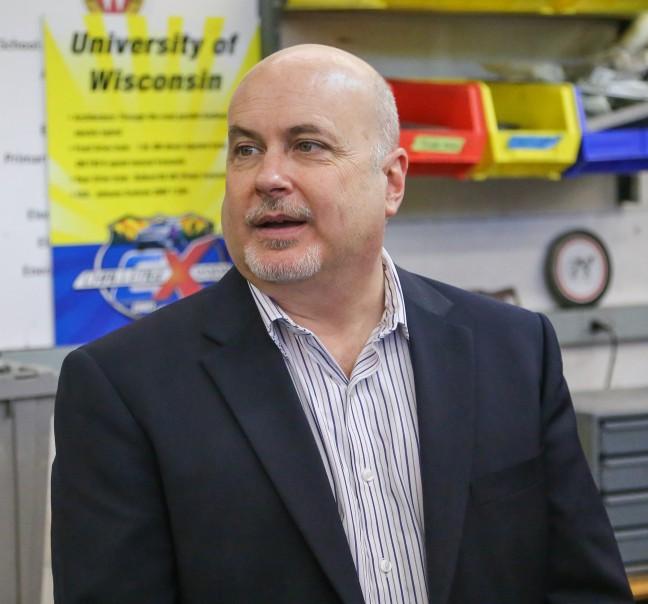U.S. Rep. Mark Pocan, D-Wisconsin, held a press conference Wednesday to push for the reauthorization of a longstanding University of Wisconsin loan program which allows undergraduate and graduate students to borrow money free of interest until they graduate.
Pocan said lower income families in particular use the Perkins Loan Program. He said he himself used a variety of loans throughout his pursuit of higher education and wants other students to have the opportunity to do so too.
Pocan said the reauthorization passed unanimously through the House but now is being held up in the Senate, drawing out the process.
“I would hate to see anyone blocked because Congress can’t reauthorize a program that has been in place since 1958,” Pocan said. “This is a one-year extension.”
Brittany McAdams, second-year UW medical student, said she would not have gotten to this point in her higher education without financial aid support.
She said medical school is particularly hard to pay for out-of-pocket, and she takes out yearly $60,000 loan to afford it. McAdams said when she and many of her peers graduate after four years, they are sitting on more than $200,000 in debt.
McAdams said while the $5,000 she received annually from the Perkins Loan is small compared to the high cost, it symbolizes that UW believes the work she and her peers are doing is important.
“Wisconsin was the only school that offered me a Perkins Loan in my financial aid package and it’s absolutely a reason why I am here,” McAdams said.
Michelle Curtis, associate director of the Office of Financial Aid said UW has about 4,000-5,000 students who benefit from the Perkins Loan Program annually.
Many of the students receiving the loans, Curtis said, already maxed out both their subsidized and unsubsidized loan eligibility and are ineligible for expensive private loans.
“This program is important, it’s an important part of a financial aid package, and quite honestly the idea that students are going to be able to get this kind of funding, a couple thousand dollars, somewhere else in their financial package is just not true,” Curtis said.
Nayeli Spahr, a fourth-year medical student, grew up with an immigrant single parent who worked two full-time jobs to get her through grade school to high school. She said without a savings account that it is a “financial struggle” to make it through college, but the Perkins Loan helps.
Spahr said without her financial aid package, including the Perkins Loan, she would not have finished college in four years, served in the Peace Corps or be in her last year of medical school.
“[The] Perkins Loan really got me to this point and I think that opportunity should be available to all students wanting to better themselves and their communities,” Spahr said.
Pocan said one person in the Senate is currently preventing the reauthorization which would impact thousands of students.
He expressed concern for students who decide to change majors midway through because if the program is not reauthorized they will not be eligible for the loan and will lose it halfway through their education.
“There is an impact on current students, there is an impact on new students and the impact falls greatest on students who have the greatest need,” Pocan said.
Correction: An earlier version of this article misspelled Nayeli Spahr’s last name. The Badger Herald regrets this error.


